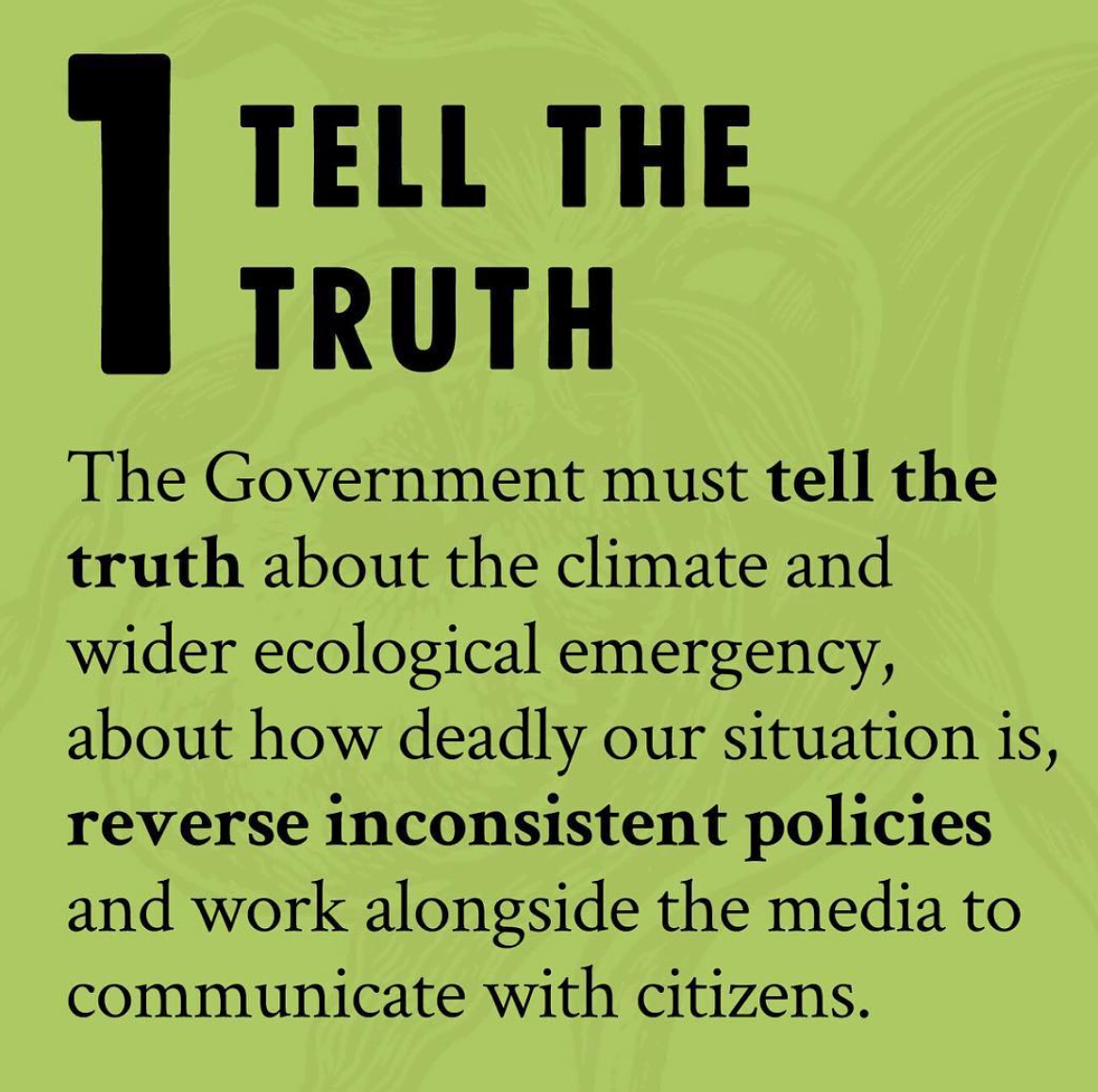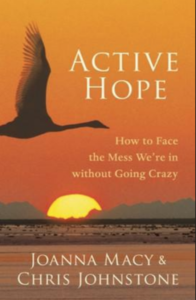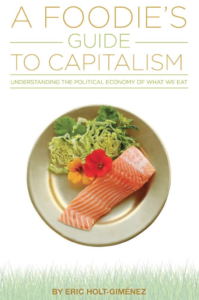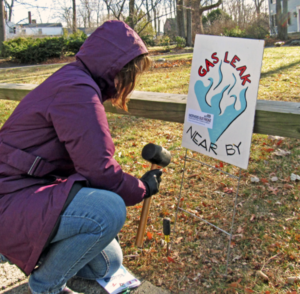 Someone recently asked me what I would do if I had a green magic wand. I could wave that wand and big green groups would take on 5 campaigns that might better our odds at surviving the future.
Someone recently asked me what I would do if I had a green magic wand. I could wave that wand and big green groups would take on 5 campaigns that might better our odds at surviving the future.
If survival sounds overly dramatic to you, then you haven’t been reading the science that I’ve been . The IPCC report makes it clear that we have 12 eleven years to dramatically decrease our carbon emissions before positive feedback loops kick in which will create runaway climate disruption. Extinction is a word that is swiftly creeping into the lexicon. Canadian scientist David Suzuki openly says it is time for us to start thinking about human extinction.
Survival. Extinction.
This is where we are now. This is so much more than simply reducing emissions by 20% in time for the year 2020. The age of incrementalism is over. Baby steps will not get us out of a house that is on fire. Convenience and comfort will need to take a back seat if we care about the future of mankind. So here I am, with a green magic wand. Here are 3 out of the 5 campaigns I would propose. Let’s get started.
Campaign #1 Read the IPCC Report and the 4th National Climate Assessment. Anyone who is holding an elected office must do this. By not getting up to speed on the current science, our electeds are not able to make fully informed decisions. It is no longer acceptable to remove trees and wildlife while giving tax breaks to developers. We must take into consideration disruptive weather which is now the new normal: flash floods, extreme heat and droughts. Its not just preparing for super storms anymore. I recently used 3 minutes of public comment at my County Board of Legislators meeting to make this point. I was sad to note plastic water bottles on every one of their desks. Our leaders are not leading the way. Yet.
Information like this can no longer be delegated to a sustainability group, we’ve gotta get out of the silos and get everyone up to speed. Croton on Hudson recently had an Eco Forum that featured Chandu Visweswariah explaining the IPCC report to a room filled with concerned citizens. That sort of information needs to be required reading and discussion for everyone who is holding public office. Communities should also be reading and digesting these reports in groups. If we are to have a reasonable shot at adapting for the times ahead, we must stop sugar coating the science.
 #1a. Do the Despair Work, create support groups. Once you fully understand what the IPCC report has to say, you will need to face the grief before you can more forward. One of my mentors recommended this concept to me many moons ago when I was part of a book group at Stone Barns Center for Food and Agriculture. We were studying the compatibility of food and capitalism, spoiler alert! They are not compatible! In the context of agriculture, we discussed environmental collapse. It was then that I learned about the work of Joanna Macy and attended a workshop to deal with my despair. The Work that Reconnects helps us to break out of the trance. “Instead of privatizing, repressing and pathologizing our pain for the world (be it fear, grief, outrage or despair), we honor it. We learn to re-frame it as suffering-with or compassion.” From there, we can move forward in a more powerful and effective way.
#1a. Do the Despair Work, create support groups. Once you fully understand what the IPCC report has to say, you will need to face the grief before you can more forward. One of my mentors recommended this concept to me many moons ago when I was part of a book group at Stone Barns Center for Food and Agriculture. We were studying the compatibility of food and capitalism, spoiler alert! They are not compatible! In the context of agriculture, we discussed environmental collapse. It was then that I learned about the work of Joanna Macy and attended a workshop to deal with my despair. The Work that Reconnects helps us to break out of the trance. “Instead of privatizing, repressing and pathologizing our pain for the world (be it fear, grief, outrage or despair), we honor it. We learn to re-frame it as suffering-with or compassion.” From there, we can move forward in a more powerful and effective way.
#2 Address the non CO2 gases that impact climate disruption. We’ve all heard about carbon dioxide and it’s role in climate chaos. There are other gases that need to be called out. Methane- CH4 and Nitrous Oxide – N2O are at the top of my list.
Nitrous is known as laughing gas at your dental office. But on your lawn or a nearby golf course, nitrous is no laughing matter. Nitrous is released into the atmosphere when petrochemical nitrogen based fertilizers are applied onto soil. N2O is 298 times worse than CO2 for our climate. There are other better ways to build soil fertility. Composting, worm composting are two of my personal favorites.. The BioNutrient Food Association is a good resource for planet friendly strategies, we have a wonderful chapter here in Westchester County.
Fugitive methane is a fancy word for the gas that is leaking from fracking operations.There are leaks every step of the way, from the well head to our stoves and furnaces. Gas leaks can kill trees in low doses, they kill people when concentrations are high enough to be explosive. Mothers Out Front in Massachusetts are working to call out the gas leaks.
The leaked gas is mostly methane, a potent greenhouse gas that:
- is much more damaging to the climate than carbon dioxide — 86 times more damaging in its first 20 years in the atmosphere;
- cancels out the effect of our hard-won efforts to bring down our emissions through efficiency and conservation.
Also note: methane is a precursor to ground level ozone, which can trigger asthma attacks and cause or worsen other respiratory illnesses.
BU professor Nathan Phillips is one of my personal eco heroes. He’s done lots of work on fugitive methane ever since discovering a gas leak in his neighborhood. We need folks like him everywhere!
 #3 Eating in the age of Climate Disruption. There are over a million acres underwater right now in the midwest with topsoil washing away as I write this. We need to act quickly and decisively to decentralize and localize our our food supply. Veggie gardening needs to move beyond being a fun hobby for wealthy folks and other food enthusiasts. We need community garden programs on county parkland and on sunny properties of houses of worship. We need “green jobs” that will employ young farmers and expert gardeners to teach others food growing skills. We need to become a land of lawnless yardeners. Our current food system is incompatible with a livable future. School gardens should be part of STEM, project learning based curriculum. This goes well beyond ‘nutrition”, these skills will be in great demand in years ahead as our current food system collapses. Cuba is a great example of how a localized food system that does not rely on fossil fuels can work. Experts will tell you that our current capitalist system is not compatible with food. We have to work at feeding the world without destroying it. We also must address wealth inequality. Community gardens are excellent tactics to overgrow this system. They are also excellent ways to build community which we will need more than ever as climate disruption ramps up in the years ahead.
#3 Eating in the age of Climate Disruption. There are over a million acres underwater right now in the midwest with topsoil washing away as I write this. We need to act quickly and decisively to decentralize and localize our our food supply. Veggie gardening needs to move beyond being a fun hobby for wealthy folks and other food enthusiasts. We need community garden programs on county parkland and on sunny properties of houses of worship. We need “green jobs” that will employ young farmers and expert gardeners to teach others food growing skills. We need to become a land of lawnless yardeners. Our current food system is incompatible with a livable future. School gardens should be part of STEM, project learning based curriculum. This goes well beyond ‘nutrition”, these skills will be in great demand in years ahead as our current food system collapses. Cuba is a great example of how a localized food system that does not rely on fossil fuels can work. Experts will tell you that our current capitalist system is not compatible with food. We have to work at feeding the world without destroying it. We also must address wealth inequality. Community gardens are excellent tactics to overgrow this system. They are also excellent ways to build community which we will need more than ever as climate disruption ramps up in the years ahead.
I realize this is a huge bite of information to digest in one reading. The next 2 campaigns will be posted here in the days ahead. Do you have a magic wand? Can you get folks to consider these 3 campaigns? Please share this piece with friends, electeds, colleagues and those you love. It will take all of us to step up if we are to survive the future. Here’s hoping we can pull it off.


